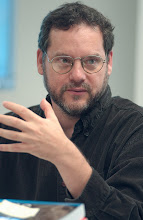Help for the "Creatively Maladjusted"
 Next weekend, I'm traveling to give a keynote talk at a major national conference on Psychology-Ecology-Sustainability at Lewis and Clark College in Portland, Oregon. My presentation is entitled "Creative Maladjustment: Activism as a Way to Heal Self, Society, and Planet," I took the title from a phrase used in a talk given by Martin Luther King at the 1967 annual convention of the American Psychological Association. In that speech, King called on psychologists to help foster "creative maladjustment" to racism, economic injustice, religious bigotry, and militarism. I'm building on that and focusing my talk on how psychologists can offer their professional insights and tools to the sustainability movement of today.
Next weekend, I'm traveling to give a keynote talk at a major national conference on Psychology-Ecology-Sustainability at Lewis and Clark College in Portland, Oregon. My presentation is entitled "Creative Maladjustment: Activism as a Way to Heal Self, Society, and Planet," I took the title from a phrase used in a talk given by Martin Luther King at the 1967 annual convention of the American Psychological Association. In that speech, King called on psychologists to help foster "creative maladjustment" to racism, economic injustice, religious bigotry, and militarism. I'm building on that and focusing my talk on how psychologists can offer their professional insights and tools to the sustainability movement of today.One of the examples I'm going to offer the 175 people in attendance is a new activist manual edited by Dr. Rachel MacNair and several members of Psychologists for Social Responsibility. This anthology is called Working for Peace: A Handbook of Practical Psychology and Other Tools. If you haven’t read it yet, I encourage you to do so.
The goal of the book is to provide a useful handbook of practical psychological tools and insights for anyone “who wants to find better ways to work for peace or otherwise improve the world.” In essence, the authors of this anthology are trying to help people become ever more creatively maladjusted to a militaristic world gone mad.
The introduction of the book offers a great snapshot of the kinds of psychological insights and tools that can help citizen activists in their work. For example, the authors write “if you are feeling overwhelmed” go to these chapters; “if you are wanting to improve your personal effectiveness” go to these chapters; “if you are wanting to help your local group work better” go to these chapters; “if you are having trouble dealing with one or more members of your group” go to these chapters; “if you are having trouble communicating your message to the public” go to these chapters; “if you are looking for ideas on how to make greater impact” go to these chapters; “if you are looking for ideas about conflict resolution and/or nonviolent action” go to these chapters.
The 34 essays in the rest of the book then deliver excellent tools and insights that can help people solve many common problems facing citizen activists working for peace and other important causes. I’m very proud that Susan Hawes, one of my colleagues in the Clinical Psychology Department here at Antioch, has an essay in this book. Her piece is called “Dialogues Across Difference.” I’ve told Susan, but I am going to tell the assembled psychologists in Portland how incredibly grateful I am for this kind of help from the field of psychology.


0 Comments:
Post a Comment
<< Home